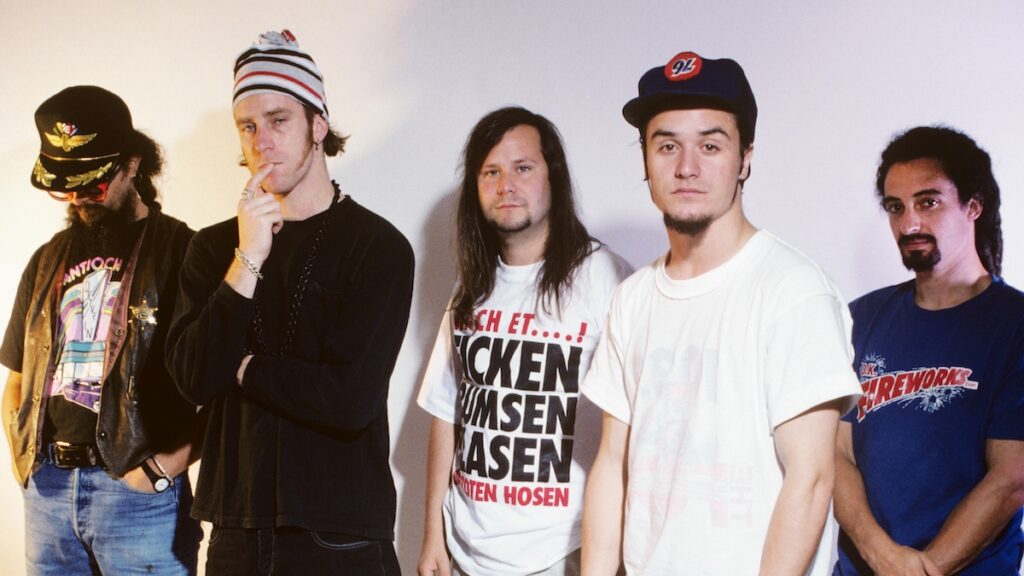There was much at stake when it came to Faith No More’s fourth full-length album, 1992’s Angel Dust. The band — singer Mike Patton, guitarist Jim Martin, bassist Bill Gould, keyboardist Roddy Bottum, and drummer Mike Bordin — was coming off the biggest selling release of their career, the double platinum certified The Real Thing (which had spawned the rap-rock hit single, “Epic”), and had been embraced by MTV, radio, and the mainstream rock press. Hence, its follow-up was destined to catapult their career even higher. However, Faith No More quite admirably decided not to placate the masses.
“We were in a new studio,” recalls Gould in a new conversation with Heavy Consequence. “We picked a place called Coast Recorders in San Francisco [with the producer of FNM’s previous albums, Matt Wallace, once again behind the board], which was an old school recording room that went back to the ’50s. In contrast to the large airy room where were recorded the previous two albums [Studio D in Sausalito], this room was tight and punchy. Our gear sounded and felt different in there. Also, as we were coming off the success of The Real Thing, our recording budget had increased substantially … so we had the luxury to book more time, and leave time for exploration and experimentation. Prior to that, we had always been mindful of being ‘on the clock’ and keeping our sessions as efficient as possible.”
There is an age-old debate concerning “Does friction create great art?” And if you were to study interviews with the band around this era, it seemed as though Martin did not see eye-to-eye with his bandmates. And Gould was willing to confirm this observation. “Our writing, our interaction…it had always been a bit contentious before this album. Clearly we were different people, whose sense of aesthetic and purpose didn’t always match. But we had always managed to work it out in the end. On this album, we got through it. But Jim was not happy with the result, it was obvious and he was pretty honest about it. What made it different was that this time our issues didn’t resolve.”
Because of this, there has been much speculation concerning if Martin supplied all the guitar lines on the album, or if Gould had to fill-in at certain points. Again, the bassist sets the record straight, once and for all. “I don’t believe I played any guitar that was recorded on that album, with the exception of the guitar line on ‘Midlife Crisis’.”

